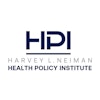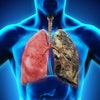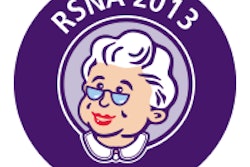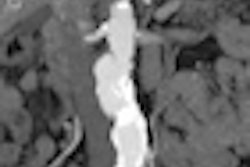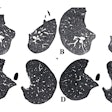After nearly two decades of promoting a colorectal cancer screening exam they believe is a better test than optical colonoscopy, virtual colonoscopy advocates have no illusions about the difficulties that have impeded their efforts to secure reimbursement for screening. But lately they're more hopeful of a real breakthrough.
At the International Symposium on Virtual Colonoscopy, held on October 22 and 23 as a private in-camera session in Cambridge, MA, industry and clinical leaders for the CT-based test all agreed that a spate of new published studies on virtual colonoscopy (also known as CT colonography or CTC) had satisfied all of the demands of the U.S. Preventive Services Task Force (USPSTF) and the U.S. Centers for Medicare and Medicaid Services (CMS) for additional evidence of efficacy.
The demands came from a decision in 2009 wherein CMS declined to issue a Medicare coverage decision for VC based on what it called insufficient evidence in a few key areas, including radiation dose, extracolonic findings, and especially the effectiveness of virtual colonoscopy in the Medicare population.
But for all intents and purposes, the evidence shortcomings that CMS cited in 2009 have been satisfied, according to Dr. Judy Yee, chief of radiology at the Veterans Affairs Medical Center in San Francisco and head of the American College of Radiology's (ACR) colon cancer committee, which is spearheading efforts to secure broad-based reimbursement for screening.
"We meet with CMS last year and it was a very productive and collegial meeting, and they were helpful in giving us direction as to how to work through the best chances of getting approval," she said in an interview with AuntMinnie.com. Going forward "their suggestion was to work with USPSTF, [which] will start the process of re-evaluation, and then we will reapproach CMS," she said.
USPSTF's regular five-year colorectal cancer screening review is scheduled for fall 2013, but "we'll see if we can obtain earlier consideration," she said. "We were waiting until after the election."
USPSTF has developed a very open process for considering evidence at several time points during the evaluation process where it welcomes input from stakeholders and the public, Yee said. "It's an effort, I think, to make the process more transparent and to ensure a fairer process," she said.
And considering that USPSTF hasn't cited any additional evidence gaps for the committee to work on, the approval process should be fairly straightforward from here on out, Yee said. USPSTF's requirements for additional evidence have generally mirrored those of CMS, though USPSTF focused more on the efficacy of exam. Unlike CMS, she said, USPSTF "didn't hang their hat so much on age 65 and older."
"Obviously I think CTC is a validated test," she said. "Now it's a matter of working through the wheels [of USPSTF and CMS] and taking the appropriate steps to get it reimbursed. And we're pushing this -- it's not even on the back burner -- we're pursuing this as aggressively as possible."
Acknowledging the realities of the U.S. debt and the looming constraints of fiscal austerity, she added: "You always have to consider it, but I think that when you know you have an excellent test that can save lives, you have to educate the appropriate policymakers about it."
Other symposium topics
VC CAD: Led by Dr. Hiro Yoshida from Massachusetts General Hospital, participants discussed progress in virtual colonoscopy computer-aided-detection (CAD), including efforts in lesion matching between prone and supine, rotational alignment, CAD performance at low doses, and CAD variability between full, limited, and noncathartic prep.
Workstations: The workstation improvements panel discussed innovations in automated 3D tracking, linking improvements between prone and supine CTC datasets, 3D visualization at low radiation doses, and specific improvements from workstation vendors.
Practice consensus: Symposium chair Dr. Matthew Barish from New York University Stony Brook presented the 2011 consensus statement and held discussions for this year's update, contrasting and comparing practices with the recently published European Union statement published by the European Society of Gastrointestinal and Abdominal Radiology (ESGAR).
Evidence: Dr. David Kim from the University of Wisconsin discussed recent studies aimed at closing the evidence gaps identified by CMS and USPSTF, and participants agreed that little or no gap remains as an obstacle to screening reimbursement.
ACR registry: Dr. Abraham Dachman from the University of Chicago discussed the ACR's CTC registry project that he is spearheading with the aim of continuous quality improvement for participating sites.
C-RADS update: Dr. Michael Zalis from Massachusetts General Hospital presented an update of the C-RADS classification system for CTC findings, a project he is leading. The new version is being revised and updated for publication, according to meeting organizers.
Private practice: Dr. Mark Klein from Washington Radiology Associates in Washington, DC, discussed methods to improve community adoption of CTC and lessons learned from private practice.


